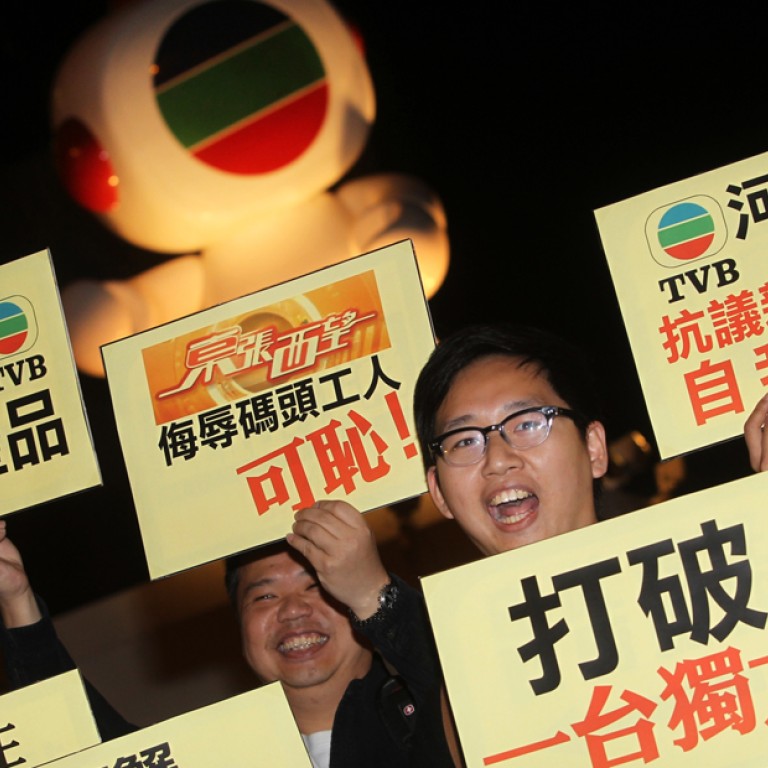
Tight regulation of the broadcasting industry is not unique to Hong Kong
Regina Ip says whether here or abroad, the business of broadcasting tends to be tightly regulated for public interest reasons, which Hong Kong officials were right not to ignore
The controversy about free-television licensing brought into focus the frequent disconnect between popular perceptions and policymaking.
The furore that erupted following the announcement of the government's decision to issue licences to two out of three applicants - ruling out the most high-profile one - sent officials running round with hair on fire.
While the disappointment on the part of the artistes and viewers looking for an alternative to the all-powerful TVB is understandable, the accusations of injustice and suppression of competition hurled at the government caught many by surprise.
The general lack of understanding of how the broadcasting industry works is amply illustrated by the questions being raised. One frequently asked question is: as a city well known for its free-market philosophy, why didn't the government issue licences on demand, and promote competition by handing one to the most determined challenger of the dominant player?
The fact is, despite Hong Kong's reputation as the world's freest economy, the telecommunications and broadcasting industries have long been tightly regulated, in line with international practice. Whereas the print publishing industry enjoys a light hand allowing a high degree of free expression, the nature of the broadcasting industry - the scarcity of frequency spectrum, the need for the construction of infrastructure, the setting of technical standards, the provision of services for public interest reasons, the issues of market access and anti-competitive practices - has mandated tight regulation right from the start.
In Hong Kong, as in other parts of the world, statutory authorities give advice on regulatory policy and licensing, draw up a code of practice for broadcasters and handle public complaints, among other duties.
Those who complain about the dominance of one major player in free-TV broadcasting should note that this phenomenon is not unique to Hong Kong. The high entry barriers in the form of substantial upfront capital investment and ongoing investment to retain talented performing artistes and sustain high TV ratings mean that, in time, the broadcasting industry worldwide has tended to be dominated by multinationals, which are often vertically integrated.
For example, Comcast Corporation, the largest mass media and communications company in the world, is not only a cable company and internet service provider, but also owns NBC-Universal. The merged production powerhouse has come to operate more trendy, specialised cable and satellite networks targeting young, female and minority audiences (E! Entertainment Network and Bravo TV), in addition to the well-established national commercial TV and radio network, the National Broadcasting Company.
Experts point out that the Canadian market is even more concentrated, with arguably only four firms in the dominant position. Global developments approve the cliché that big is beautiful.
In Hong Kong, a persistent bone of contention is the size of the advertising revenue, which delineates the size of the market. Although some experts have put the size of Hong Kong's total cross-media advertising revenue at an incredible HK$99 billion, TVB reported that it captured no more than HK$3 billion. Veteran TV executive Robert Chua estimates the annual TV advertising revenue to be HK$4 billion to HK$5 billion, which he concedes may be on the high side.
While a challenger to an ageing dinosaur is always exciting and easily wins over fans, the sustainability of five free-TV stations in such a competitive environment is questionable.
Moreover, advertising revenue fluctuates in tandem with economic growth. When the economy slows, the first item of discretionary spending to go tends to be advertising. New modes of mass communication, prominently online platforms and social media, also eat into TV advertising revenue.
Apart from sustainability, other public interest considerations include diversity and plurality - diversity of media outlets, diversity of opinions to be broadcast and diversity of the range of information and entertainment programmes. In the case of Hong Kong, the government has good reason to consider whether it would be in the public interest for licences to be issued to broadcasters that duplicate existing channels in a frenzied competitive struggle, or to networks that add to the existing programming range.
As for more outlets for creative artistes, the success of Britain's Carnival Films in producing its hit series is a good example of studios that thrive by producing drama with worldwide appeal independent of network ownership. While the market for TV networks is crowded, there is no reason why determined players in the creative industry cannot succeed by selling their drama productions to networks.
In the past, Hong Kong TV drama has enjoyed favourable viewer reception in Cantonese-speaking communities overseas. With or without a TV licence, there is no reason why cash-rich entrepreneurs with the gumption to excel in the media industry cannot revisit this route.

